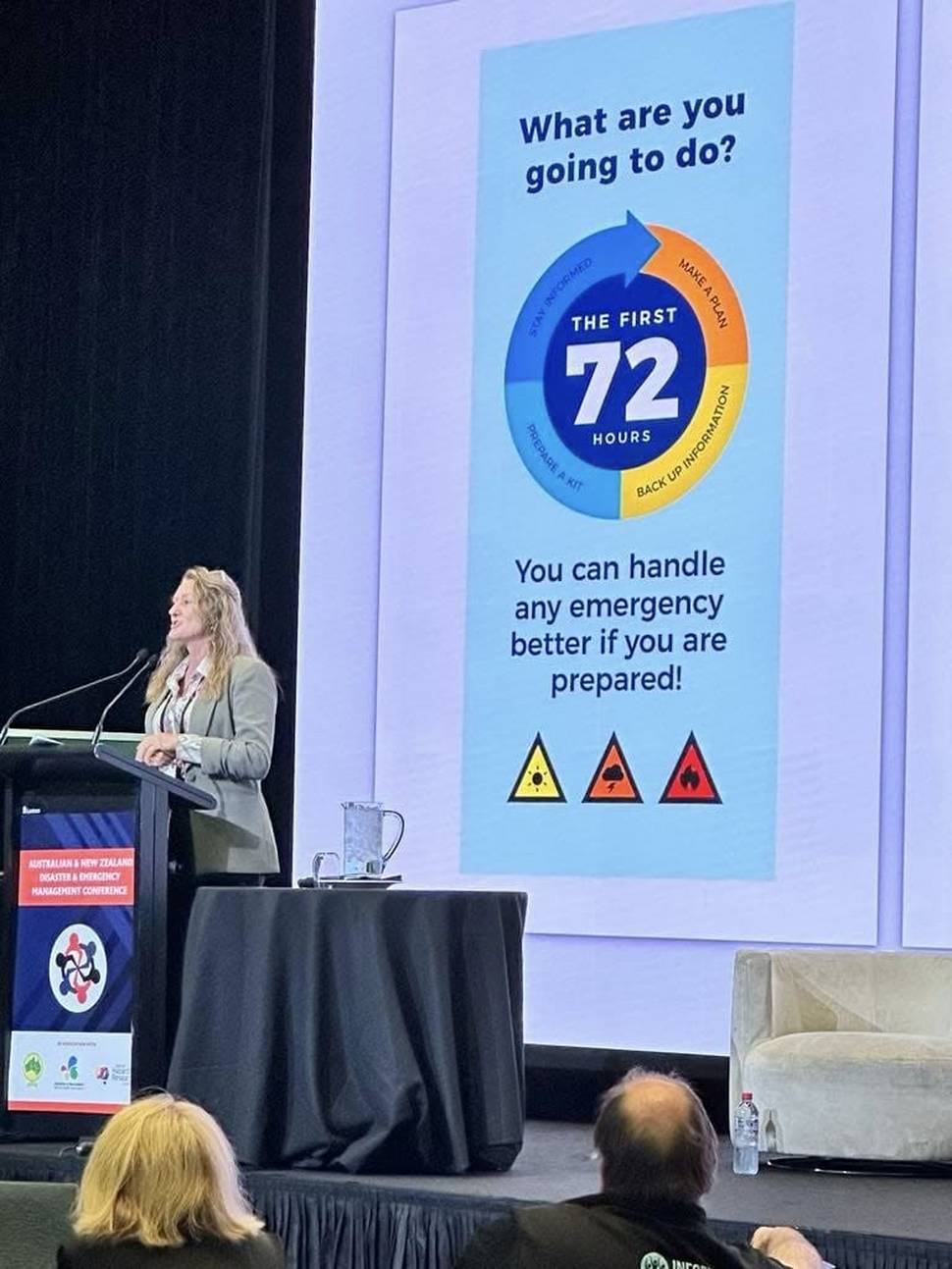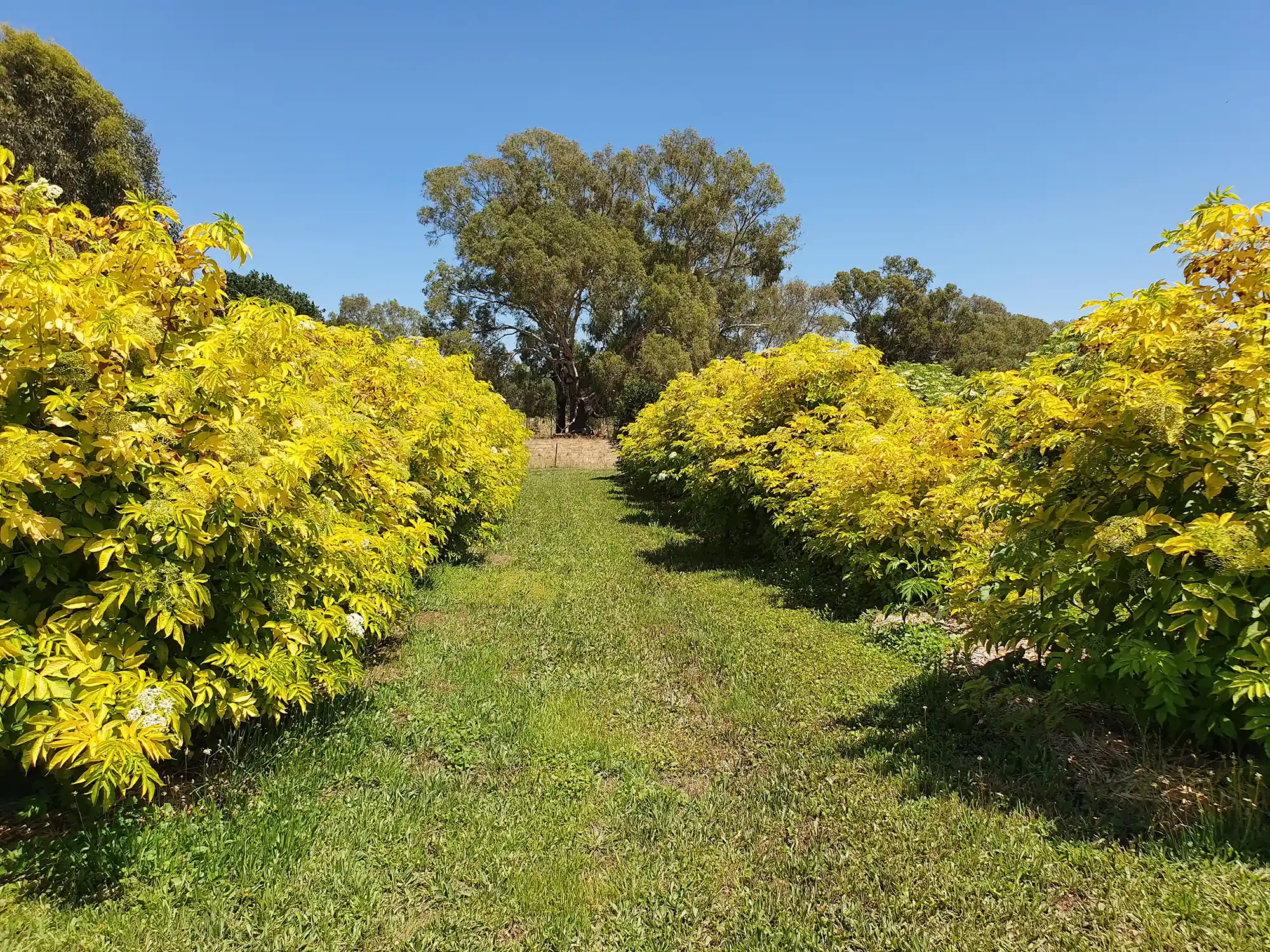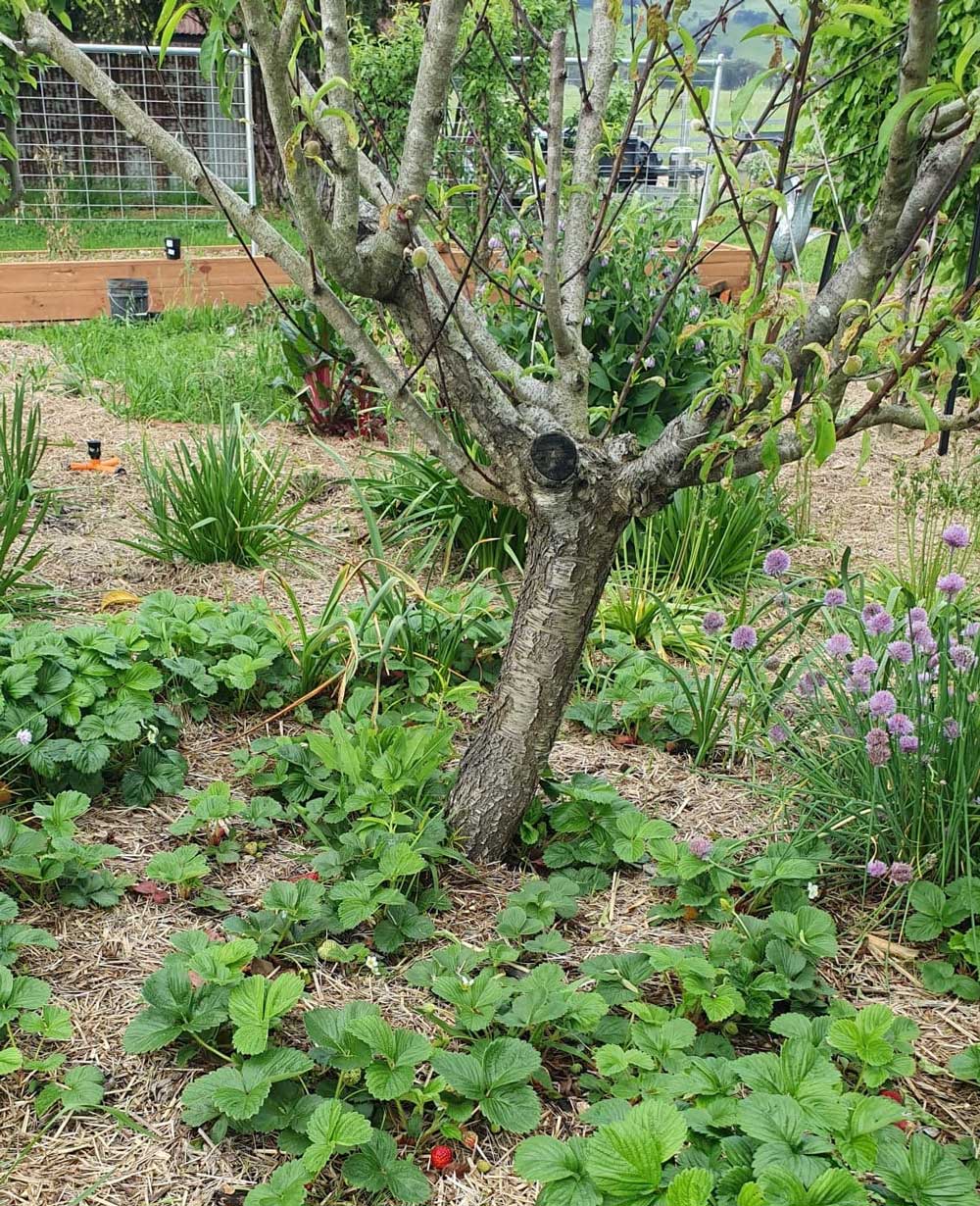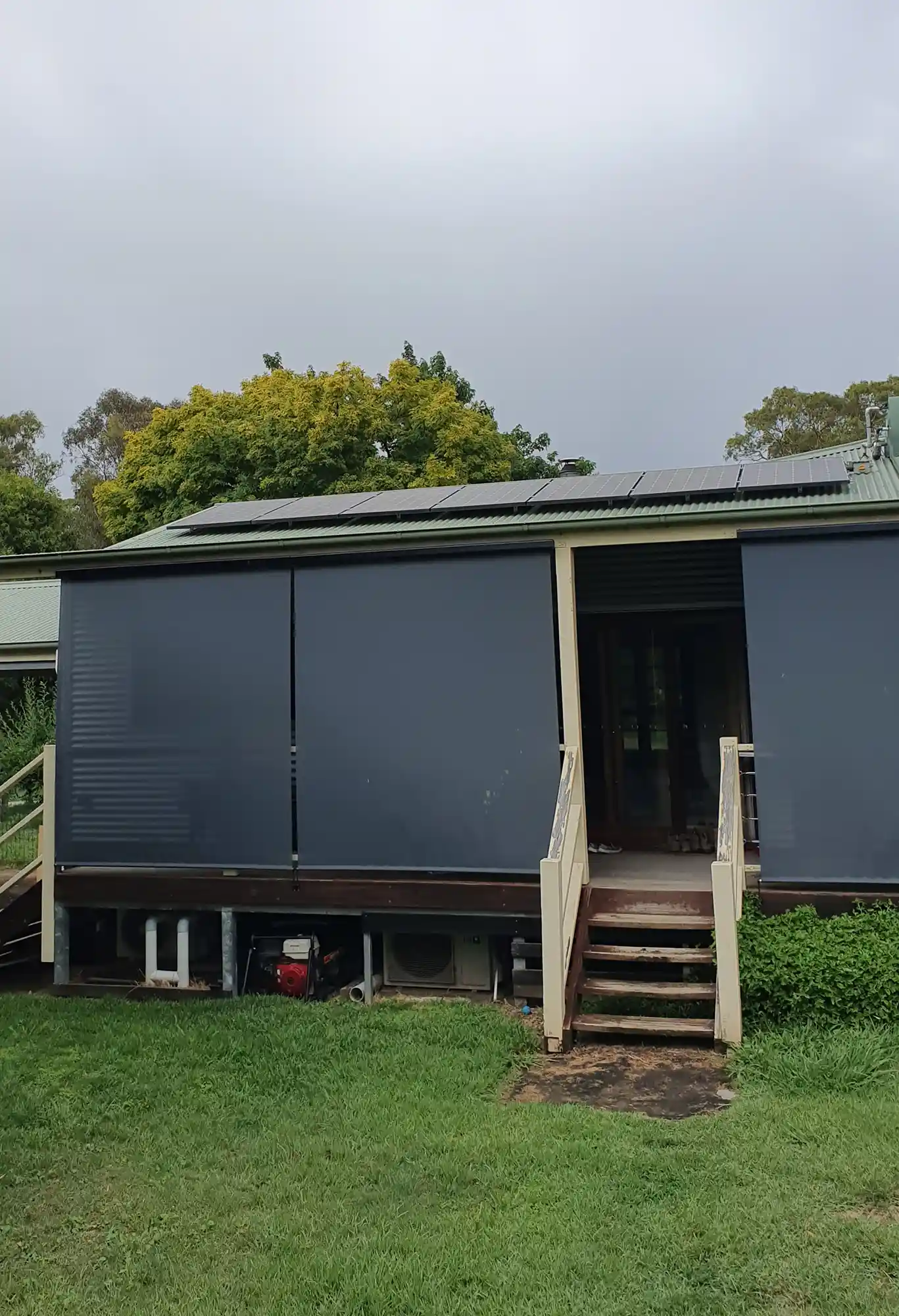Future Proofing
“Anticipating future events and implementing ways to minimise the impacts.”Future Proofing – It’s Our PASSION
We met while studying architectural drafting and share a passion for sustainable housing. Over the years Paul has continued to expand his knowledge and skills with carpentry and metal work which has been very handy developing the farm. Karen increased her knowledge of sustainability and building community and completed a diploma in permaculture. This eventually sparked her passion for teaching sustainable housing and designing for disaster. In 2016, Karen began working in recovery and emergency management after a bushfire swept through our valley.
As an emergency management coordinator, Karen has worked with the impacts of fires, floods, COVID and Landslide. This knowledge and lived experience has fueled our passion to future proof our farm and income streams to minimize the challenging effects of any disaster, shock or trauma which may happen unexpectedly.
A shock could be something as simple as falling off a ladder and being unable to work for 6 months or more. With this in mind, future proofing our income became a high priority in establishing our farm. We wanted to ensure our basic needs such as food, water and shelter are met knowing each are equally important for our wellbeing.
Through our journey, we share what it is like to farm, live in a rural or regional area and how we future proof in the many areas of our life. We hope the insights we share can help others explore how to future proof their home and family, no matter where they live.
~ Karen and Paul
Future Proofing our INCOME
As much as we love elderberries, leaving our jobs to grow a single crop (monoculture) would be a risky choice. Imagine a fire or some other type of disaster impacting our orchard, it potentially could take 3 – 4 years to recover before we produce a decent crop and generate an income again.
This highlights the importance of us creating diversity, while also protecting our orchard from fire, flood, storms, drought, pests and disease. This way if one source of income becomes impacted, we can continue to be supported by the other financial pathways we have implemented. By layering additional income streams and elements into our farming enterprise we become more resilient and as strange as it sounds, the farm becomes easier to manage.
Part of our philosophy is to find ways to grow and improve without increasing our workload or level of debt, which can be perceived as vulnerabilities.
Future Proofing our FOOD
Food security is a hot topic in our household. Everyone has seen the effects of COVID on supermarket shelf shortages and price rises due to natural disasters such as floods. When roads or shipping routes are impacted, so too is the rest of the distribution chain. We wanted to ensure that none of these things would impact our family’s ability to access fresh food or quality ingredients required to produce our products.
Currently we grow some of our food and supplement what we don’t produce from local sources. When we began our farming journey we had to prioritise where we placed our energy, and in what order to achieve outcomes. We began growing fruit and planning our vegetables gardens. We contemplated our time commitments and began buying from neighbors. We recognized not everyone has time or ability to do everything and neither did we.
Conversations around storage for extended periods of time arose. What would we need if there was no power or access to supplies? How could we support ourselves and those within our community?
These questions increased our belief in the power of communities working together. We saw how food can foster social gatherings with friends and community, through preserving the harvest and making salami. This encourages us to continue to add to what we currently do.
Future proofing our WATER
Water is essential for life, not just for us but also for our stock and crops. It is important we have enough, especially during times of drought for our defense against fire. Yet, having too much water can have just as many consequences to our farm as having not enough. Flash floods in our landscape can isolate us, block roads to essential services, contaminate unsecured water sources and have a negative impact on our animals and crops.
Capturing and storing water that falls on our land takes consideration too, as we need to question potential outcomes and the effects on our neighbors. For example – sinking a bore to continue heavy water usage which in turn causes a neighbor’s well to go dry or perhaps redirecting water way from our home which may negatively impact a neighbor’s home or other infrastructure.
Future proofing is not just about protecting ourselves, it is about looking after our neighbors and community as well. There is strength in numbers. If we share the responsibility, work together and look after one another we increase our collective resilience, sustainability and sense of wellbeing.
Future Proofing our SHELTER (Home)
Making our home efficient, sustainable and suitable to our needs is an area we both know well. Yet, it was not a priority in the early stages of establishing our farm as our basic need for shelter were being met. We began with thinking about what our vulnerabilities might be to ensure our needs could continue to be met.
We thought about what would happen in the heat of summer or the cold of winter if we had no power for a week. For a start, no power meant no water pump which meant, no toilet, no shower and no water for cooking (unless we went outside to the tap on the water tank).
We knew we would be dry but how would we stay cool or warm? How would we cook or keep our elderberries frozen? How would we be able to respond in a fire or flood? It became essential for us to make securing our power and having a generator as back up a priority. The rest we continue to build on over time.
Future Proofing against NATURAL DISASTERS
Like a lot of rural areas in Victoria, we live in an area that has a risk of fire, especially fast running grassfires. Whether you call it climate change or something else, natural disasters becoming more frequent and intense and we cannot guarantee help will be there precisely when we need it, especially in a larger scale disaster. As the saying goes “if it’s going to be then it’s up to me”.
It was important that we minimised our risk, our property is defendable, we have the skills and ability to defend (physically and mentally), we have a plan and we are appropriately insured. We also needed to consider how our plans need to be flexible for different situations, such as only one of us home, and how that affects our ability to defend. Each scenario needs to have different actions, in some cases, such as Karen home alone, it could be to leave.
Our property also experiences floods, luckily we knew what to look for when purchasing the farm. We saw the value of having the creek run through the front of our property and understand that in high rainfall the creek can swell and cut off our access to the bridge isolating us for a period of time. Our infrastructure is high enough in the landscape not to be impacted so we have measures in place and plan for the times that we may be isolated.
Future Proofing with our COMMUNITY
Farmers are generally connected and resilient people, if you’ve grown up on a farm you’ve probably already had to deal with challenges or a natural disaster and know what I mean. Resilient people can quickly become vulnerable if they don’t have the infrastructure to support their needs. Understanding those needs and the gaps helps when developing solutions.
Connections and community are important when it comes to planning, preparing responding and recovering from emergencies. With disasters becoming more frequent and intense it made sense for us to take an active role with resilience planning within our community. This allows us to explore how we future proof areas such as food, water, shelter, local economy and aging in place together.
Communication plays an important part in emergencies so that we can stay informed and connected. When we have these things in place it is easier for communities to make their own decisions and lead resilience planning and recovery with the support of governments and agencies.
Let’s talk about YOUR FUTURE
We believe future-proofing starts with a simple question: what would happen if things didn’t go to plan for a few days?
Karen is the co-developer of the First 72 Hours Program, along with Kate Goldsmith, a practical conversation-based planning tool designed to help people understand their own vulnerabilities and take realistic steps to reduce them — whether that’s related to power, water, health, mobility, income, or support networks.
The program isn’t about fear or perfection. It’s about confidence, connection, and having enough of a plan to make clearer decisions when it matters.
So grab your family, friends, neighbours — or even your workmates — and “have a brew and chat 72.” Videos and downloadable templates are available on the Alpine Shire Website.
Interested in learning more?
If you’re curious about upcoming workshops, would like to arrange a group session, or simply want to start a conversation, you’re welcome to get in touch.






